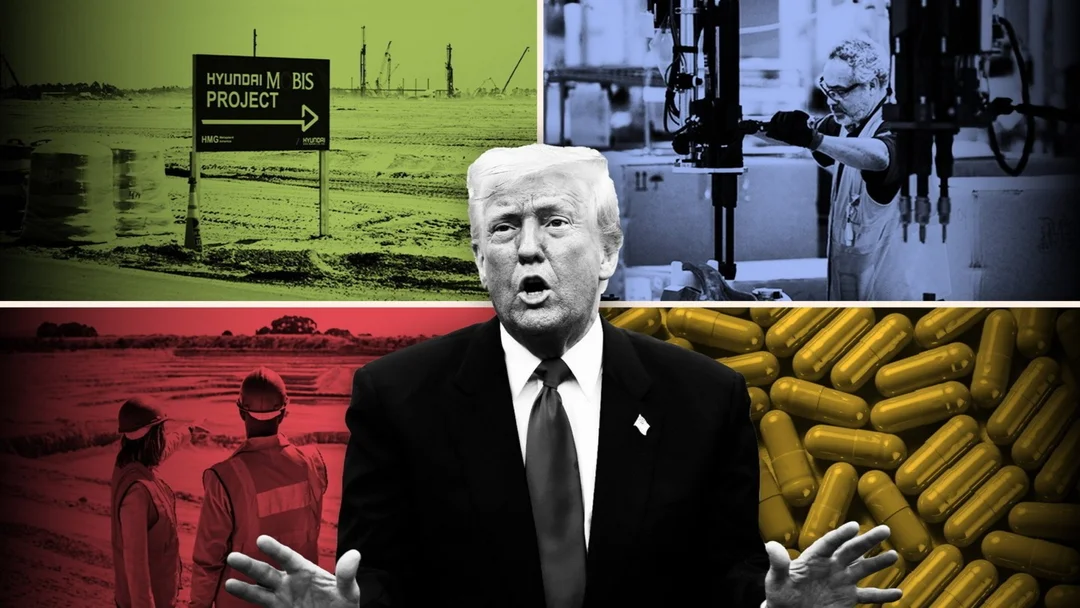
Tariffs, Nostalgia, And The Complex Reality Of Reviving American Manufacturing
In recent weeks, President Donald Trump has reignited debate over U.S. economic policy by imposing sweeping tariffs targeting countries like China, Vietnam, and the European Union, promising they will restore American manufacturing jobs and bolster national security. While some applaud this bold approach, promising a resurgence of domestic industry, many experts caution that these tariffs may have far-reaching economic consequences — and that the romanticized American manufacturing miracle may not be as easy to recreate as it once was.

President Trump contends that reinvigorating domestic industries is vital: "Jobs and factories will come roaring back," he declared while unveiling the tariff plan. The administration emphasized these moves are crucial for economic strength and national security, particularly in core sectors like steel and aluminum production. However, numerous economists warn that these policies could, paradoxically, discourage companies from relocating manufacturing stateside, especially given prolonged investment horizons and high U.S. labor costs, which could ultimately inflate prices for consumers.
"Trump has a fundamental misunderstanding of how trade works. More domestic manufacturing does not mean a better economy," said Justin Wolfers, a University of Michigan public policy professor. He noted America’s transformation over time — evolving from a manufacturing giant to a service-oriented economy rooted in finance, technology, and intellectual capital — brought enormous benefits that tariffs might undermine by hurting 140 million non-manufacturing jobs to protect roughly 13 million in industry.

Layna Mosley of Princeton University further stressed global supply chain realities. Key components like microchips or textiles are deeply embedded in international trade, with limited domestic alternatives. Even if companies wanted to repatriate factories, rebuilding domestic supply networks would take years, and the resulting goods might end up pricier, given higher wages and regulatory standards in the U.S.
The political allure is undeniable: post-war America’s boom is fondly remembered as an era of factory jobs that supported burgeoning middle-class families. Yet as one commentary points out, attributing "the good life" merely to manufacturing prevalence ignores complex factors like robust unionization, high taxes on wealth, and expanded social programs, many of which fostered shared prosperity. This social fabric — not manufacturing per se — underpinned the comfortable lifestyles many now reminisce about.
Moreover, beneath this nostalgia lies an exclusionary past marred by racial and gender inequalities: while white men reaped better wages and opportunities, Black workers and women largely remained marginalized or pushed out as the nation’s economy transformed. Without today’s strong labor movements or progressive taxation, a mere resurgence of factories risks replicating a less equitable economic order, leaving many vulnerable.
From a global trade perspective, America’s new tariffs remain a seismic policy shock. Despite pauses for some trading partners, a minimum 10% reciprocal tariff and persistent levies on Chinese goods threaten to raise overall effective tariffs by 15-20 percentage points — the most disruptive maneuver in modern trade history, analysts say, putting more strain on global supply chains and risking inflationary pressures at home.
Ultimately, experts argue that focusing on future-ready sectors like clean technology, AI, or advanced services — coupled with robust worker retraining — may prove more fruitful than trying to resurrect an economic model of decades past. "It’s bizarre to me we’re trying to revive the 1950s economy at the cusp of a new technological revolution," Wolfers observed.

This debate underscores that rebuilding American manufacturing is a far more nuanced endeavor than tariffs alone can deliver. It involves confronting historical inequities, addressing today’s globalized supply chains, and investing in an economic future rather than idolizing a selective past.
How achievable is the vision of industrial rebirth in today’s complex global economy and social landscape? Readers, share your thoughts below on what truly drives a resilient American middle class — and whether tariffs are the best path forward.
Related issues news
Is the tariff good or bad?
Tariffs hurt consumers in the country that imposes the tariff because of the increased prices of imported goods. Since an importer has to pay the cost of the tariff on the goods that they import, they pass this increased cost on to consumers in the form of higher prices.
Can tariffs work?
Trump has said tariffs will boost US manufacturing and protect jobs, but economists warn that the move could harm the world economy and push up prices for consumers in the US and around the globe.
Why are tariffs bad?
By imposing heavy tariffs on its trading partners, America has not only provoked a market crash, raised uncertainty to unprecedented levels and maybe sent the global economy into recession. It has also entered the history books. The tariff war of 2025 stands as the most disruptive policy in the history of trade.